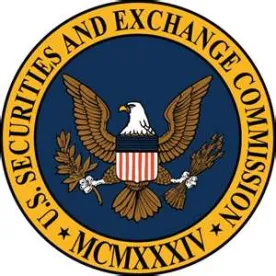On November 18, 2014, Julie M. Riewe, Co-Chief of the Division of Enforcement’s Asset Management Unit of the Securities and Exchange Commission (the “SEC”), spoke at a Practicing Law Institute seminar and identified 2015 SEC examination priorities for investment managers of private funds. Ms. Riewe identified three themes on which the SEC will focus in its examinations of hedge and private equity funds: (i) conflicts of interest, (ii) valuation and (iii) compliance and controls. She discussed how these thematic issues related to both hedge funds and private equity funds.
Hedge Funds
Conflicts of Interest
Ms. Riewe identified principal transactions under Section 206(3) of the Investment Advisers Act of 1940, as amended (the “Advisers Act”), as one of the conflicts of interest priorities for hedge funds. Ms. Riewe stated that the SEC will be focused on principal transactions in 2015, particularly how an adviser handles written disclosure and obtaining client consent in a principal transaction given that the adviser is on both sides of the transaction. Ms. Riewe further acknowledged that historically the SEC had not focused on violations of Section 206(3) of the Advisers Act due to the SEC’s historical preference to prosecute the scienter-fraud type of activities that typically accompany principal transactions. However, Ms. Riewe indicated that, going forward, the SEC will be focused more heavily on regulatory violations and infractions.
Ms. Riewe referenced Paradigm Capital Management as a typical case that the SEC would be investigating in 2015. In this case, an adviser caused its client, a hedge fund, to sell securities to a proprietary account at an affiliated broker-dealer and failed to institute proper mechanisms to obtain client consent for such principal transactions. This case was also accompanied by a companion whistleblower retaliation case. Ms. Riewe also identified side-by-side management type conflicts as examination priorities, including trade allocations and cherry picking. Ms. Riewe cited J.S. Oliver as an example of a cherry-picking case.[1]
Valuation Issues
Ms. Riewe stated that, with respect to valuation issues in the hedge fund context, the SEC is continuing to focus on aberrational performance inquiries. She said that the SEC handled eight cases in 2014 with respect to aberrational performance, resulting in charges against 10 individuals, 7 funds and a public company. Ms. Riewe said that the SEC was continuing to hone its analytics, including using data from Form PFs to ferret out aberrational performance issues in hedge funds.
Hedge Funds 2015 Examination Priorities
Ms. Riewe summarized the types of areas on which the SEC would be focused in 2015 with respect to hedge fund examinations: undisclosed fees, conflicts of interest, related party transactions, aberrational returns and the practice of using friendly broker marks as independent valuation marks.
Private Equity Funds
Conflicts of Interest
Ms. Riewe identified the area of fees and expenses as a primary conflicts of interest inquiry with respect to SEC examinations of private equity funds. She cited Lincolnshire Management, Inc. as a case in which a private equity fund adviser improperly allocated expenses of two portfolio companies that were owned by two separate private equity funds, resulting in an improper benefit of one fund at the expense of the other fund. Ms. Riewe cited Clean Energy Capital, LLC as another case in which a private equity fund adviser improperly allocated expenses; however, in this case, the adviser improperly allocated the adviser’s expenses to the private equity fund, thereby resulting in the investors bearing the adviser’s expenses.[2]
Valuation Issues
Ms. Riewe stated that in contrast to hedge funds, valuation issues are slightly different with private equity funds with their typically long-term lockup period. However, she stated that the SEC was focused particularly on valuation issues with respect to private equity funds during fundraising. She cited the Oppenheimer Asset Management, Inc. case in which an adviser to a private equity fund of funds failed to use the underlying managers’ valuation marks and improperly used inflated valuation marks during fundraising in order to inflate the fund of funds’ investment performance during fundraising.
Hedge Funds & Private Equity Funds
Compliance & Custody
Ms. Riewe also reiterated that compliance and custody were areas on which the SEC was focusing both with respect to hedge funds and private equity funds. She stated that the SEC was continuing to find recidivism with respect to advisers whose previously identified deficiencies remained un-remediated and unaddressed as found at subsequent SEC examinations. She stated that the SEC was also prosecuting wholesale compliance failures, citing the Barclay Capital Inc. case in which an adviser was found to have failed to adopt and implement written compliance policies and procedures.
[1] Please see our prior posting regarding the J.S. Oliver case.
[2] Please see our prior posting regarding the Clean Energy Capital case.




 />i
/>i

